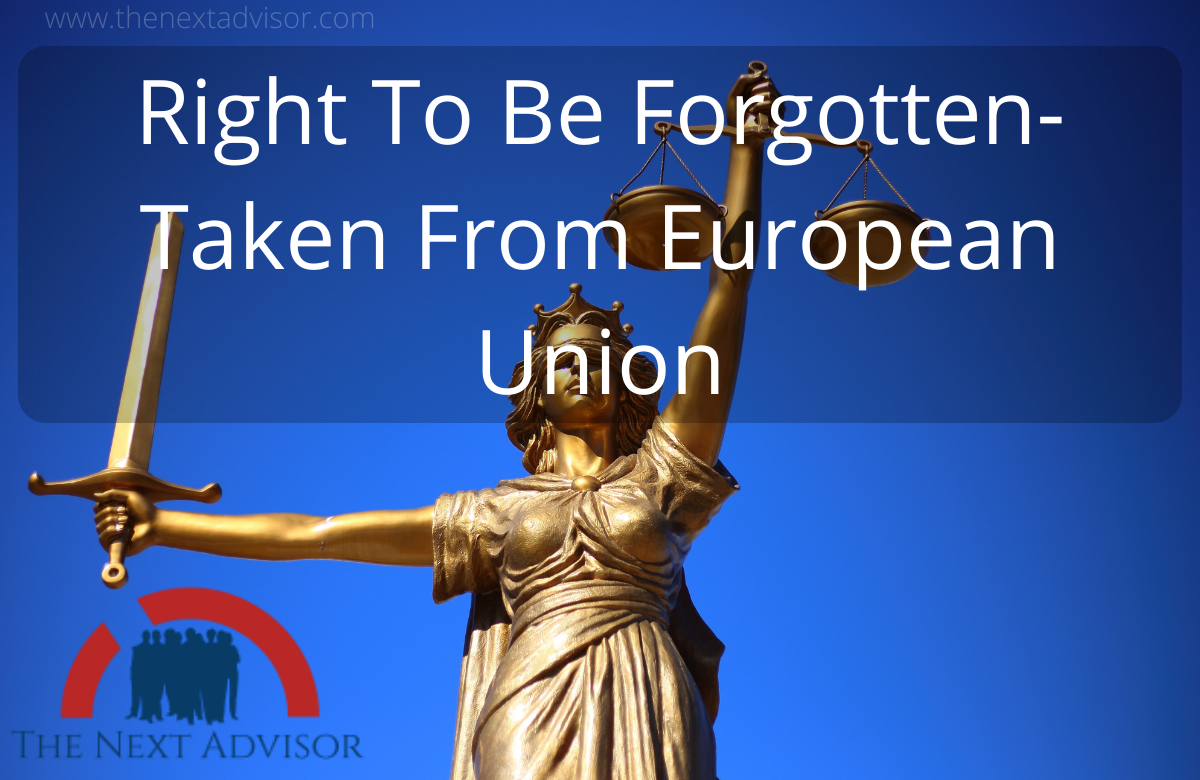Accused entitled to have his name redacted from Court orders once acquitted, is called Right to be forgotten. let us discuss exactly what is the Right to be forgotten? The right to be forgotten is the Right to have publicity available personal information removed from the internet, search, databases, websites, or any other public platforms, once the personal information in question is no longer necessary, or relevant.
For Right to be forgotten Courts takes refers from some European Union law, because In India there is no such law/right is available to Indian citizens. therefore the right to be forgotten has been recognized by the law in European Union. Let us see some Court’s views about Right to be forgotten.
Madras High Court Observed:
An accused person who is eventually acquitted of all charges would be entitled to have his name redacted from Court orders (pertaining to the crime he was earlier accused of ) in order to protect his right to privacy.
Landmark Judgment
Justice N Anand Venkatesh made the observation after a man earlier accused of offenses under Sections 417 (Cheating) and 376 (Rape) of the Indian Penal Code (IPC) and who was subsequently acquitted of all charges by the High Court moved a plea t redact his name from the Court’s Judgment.
After the acquittal, it was argued that the petitioner can no longer be identified as an accused in the eye of law. The Court found prima facie merit in the petitioner’s case and that he is entitled to get his name redacted from the High Court’s judgment.
Reliance placed upon Supreme Court
The court observed that following the Supreme Court’s historic judgment in Puttaswamy v. Union of India, whereby the right to privacy is now recognized as a fundamental right, an acquitted person would be entitled to have his name redacted from judgments referring to him as an accused.
The first impression created through Google searches in today’s world
Justice Venkatesh also observed that in today’s world, first impressions are often created based on the information obtained through quick google searches, even if such information is not authentic.
Court’s observation:- “Unfortunately, whoever types the name of the petitioner in Google search is able to access the Judgment of this Court. In the entire Judgment, the petitioner is identified as sn accused even though he has been ultimately acquitted from all charges. According to the petitioner, this causes a serious impact on the reputation of the petitioner in the eyes of the Society and therefore, the petition wants his name to be redacted from the judgment of this Court”.
Data Protection Bill, 2019 being finalized
• The Court went on to observe that the Central Government is in the process of finalizing the Data Protection Bill, 2019 which is aimed to effectively protect the data and privacy of persons.
Under prevailing laws, only the identities of victims who are women and children have to be kept confidential when writing judgments and as a result, their names do not get reflected in court orders and judgments.
Different High Courts view/judgment about Right to be forgotten
•Delhi High Court upholds Right to be Forgotten of an American citizen; and Directed Google, Indian Kanoon to block an acquittal judgment. Last year, the Kerala High Court had admitted a plea seeking erasure of the petitioner’s personal details from a Google search result.
•The Orissa High Court has also lamented the lack of a mechanism to permanently delete information from the internet in order to safeguard the right to be forgotten. Information in the public domain is like toothpaste, can’t get it back once it is out of the tube.





















